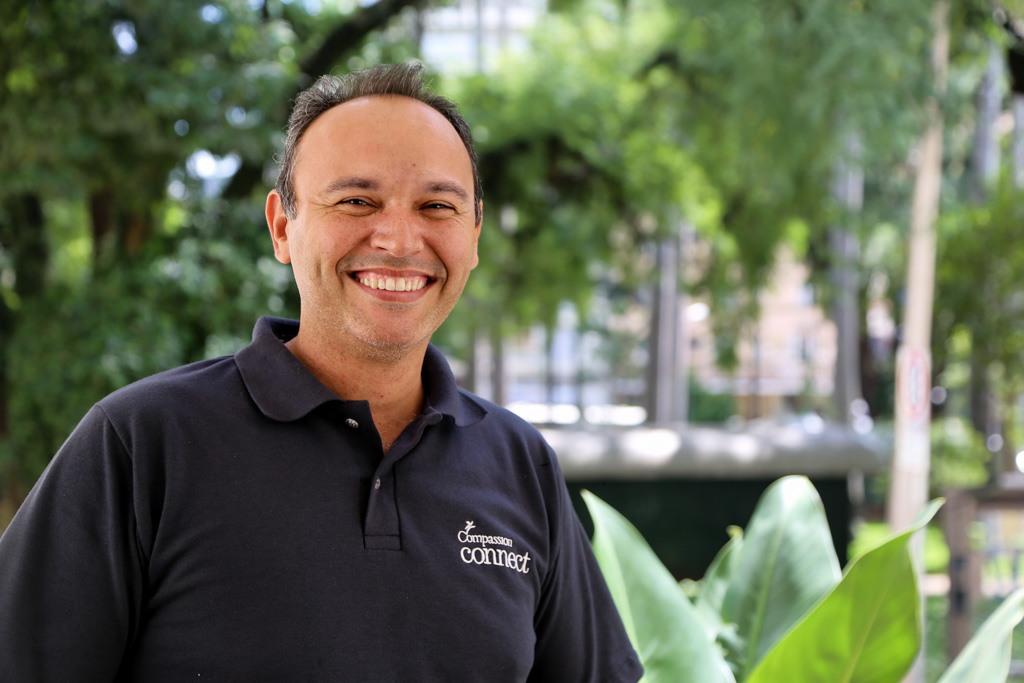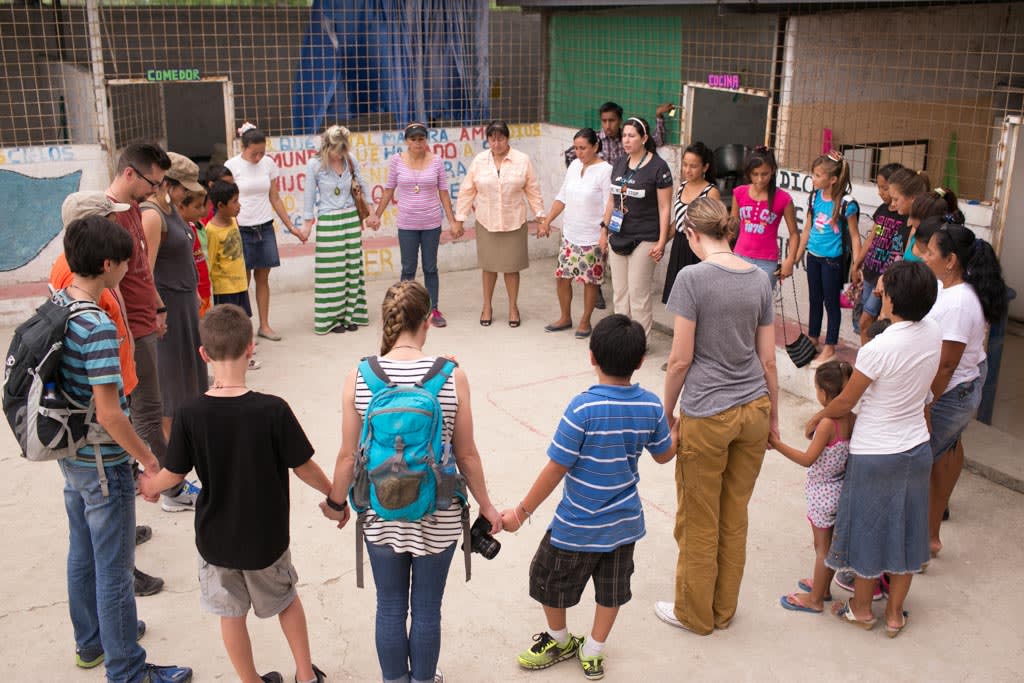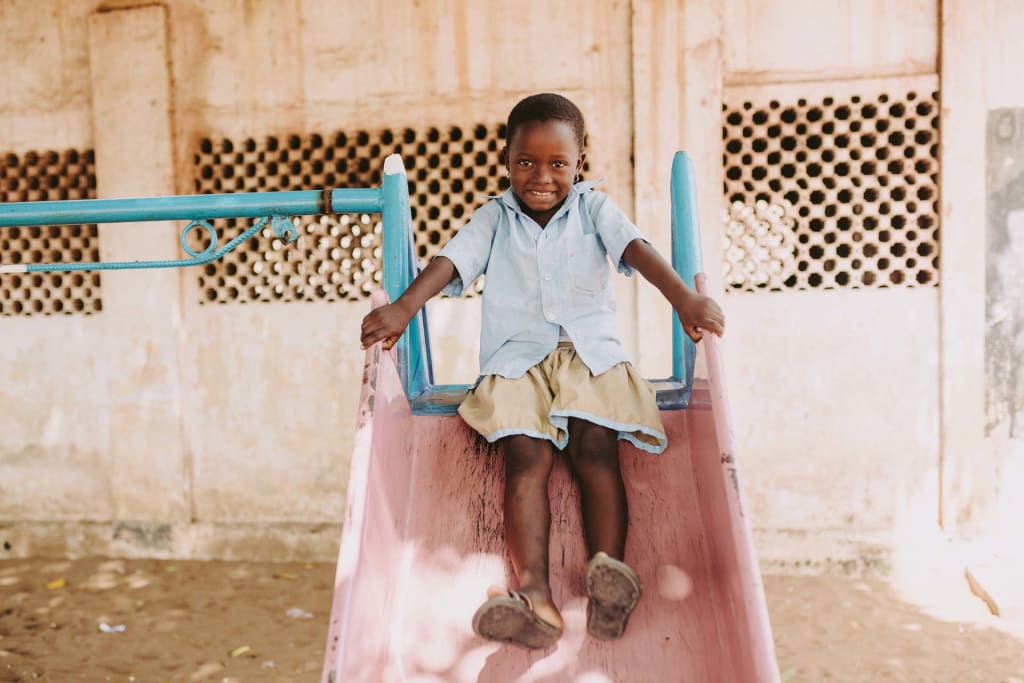Trigger warning: This post contains content about sexual abuse and violence which may be triggering to some readers.
People living in extreme poverty are some of the most vulnerable people on the planet.
They often are in desperate need of basic necessities, they often lack a public voice to speak up for their rights, and they often don’t know their rights or what recourse they have when those rights are violated.
Children in extreme poverty are even more vulnerable—the biggest reason, perhaps, that they are preyed upon by those who would exploit and abuse children.
We must never turn a blind eye to this abuse or believe that something like this could never happen in our midst.
At Compassion, we are passionate about ensuring children in poverty are known, loved and protected. Therefore, child protection is not just part of our ministry; it is foundational to our ministry.
That’s why we have developed, and continue to develop, robust training, policies and networks to both prevent and respond to abuse.
Prevention and education
In order to best protect children, we take a proactive stance toward these issues—not just responding to instances of abuse, but actively training and educating in order to prevent harm to a child.
Church partners
The frontline staff who interact with sponsored children on a daily basis are volunteers and staff members at local churches who host Compassion centres. Although these are not Compassion staff, we are serious about ensuring they are trained in Child Protection.
When a church first begins partnering with Compassion, they go through a thorough training in Child Protection. In addition to signing our Code of Conduct and Statement of Commitment to Child Protection every year, beginning this year, they will also attend a refresher session on Child Protection annually.

Ririn, age 27 (pictured above in pink), is a development centre mentor who promotes child protection in her church. “I have already co-facilitated a workshop on why we need to protect children and how to ensure they get protection. And I assessed the development centre to improve the standards of care we offer,” Ririn shares.
Children and caregivers
Each year, children receive age-appropriate training in Child Protection through Compassion’s curriculum. This ensures that children know what their rights are, how to protect themselves, and how they can respond if they or someone they know is hurt.
“While it’s not a child’s fault if they have been hurt, we want to give kids the tools to protect themselves, to make choices that help keep them safe, and to empower them to yell or run away or tell an adult so they can prevent a situation from getting worse,” says Megan Kelly, Compassion International’s Senior Child Protection Advisor.
Parents or caregivers are also trained each year in knowing their children’s rights, as well as how to respond if something were to happen.
Regional and international staff
Our national, regional and international staff, who do not regularly visit children in their work, complete computer-based training on Child Protection when they are hired, as well as signing our Code of Conduct and Statement of Commitment to Child Protection, saying they understand and acknowledge Compassion’s Child Protection standards, expectations of behaviour and our ethics standards.
Beginning this year, they will also repeat this training annually. Employees who visit Compassion centres on a more frequent basis, such as sponsor trip leaders, receive additional training on Child Protection.

“[I] desire to show those who have had their rights violated that they are people with great value regardless of the way they were treated. I pray to God that everyone who works in the Compassion partner churches understand our greatest call: to be a defender of children in all aspects,” says Francisco Jose, Compassion Brazil staff, creator of the Internal Protection Network for Compassion Brazil.
Visitors to our ministry
One of the most life-changing opportunities for our sponsors is the opportunity to visit their Compassion child. These visits encourage children and give sponsors a whole new perspective on their ministry to that child. While we know that our sponsors are dedicated child advocates, our priority is always Child Protection, so we have guidelines for all visitors to our ministry, including sponsors, contractors and vendors.
Visitors must undergo background checks, as well as Child Protection training during their trip preparation. They sign the Code of Conduct, which includes behavioural expectations such as never meeting alone with a child. We require that all visitors follow these policies without exception, so that all children may be safe.
We have been working for the past year and a half to make these policies even stronger, and in the future, Child Protection education will be woven throughout visits to see our ministry.

Sponsors visiting a Compassion centre in Ecuador praying with the Compassion staff, volunteers and children.
Response
While our prayer is that our prevention and education efforts protect children from instances of harm, the reality is that abuse does occur.
“Our goal is to have a consistent, high-quality approach to protecting children that focuses on prevention. We want to prevent abuse from occurring, rather than restoring a child from harm,” says Kelly. “The reality is that because we live in a fallen world, abuse will still happen, so there is a component of Child Protection that has to be ready to respond to instances of abuse. We intervene when harm has occurred, restore a sense of safety and help the child to heal from their experience.”
Reporting
Anyone can and is encouraged to report suspected abuse, including children, caregivers, staff, volunteers and visitors. Our Compassion staff, church partner staff and our volunteers are required to report if they have reason to believe a child may have been harmed. The most common reporting we receive is from children or caregivers of children who have experienced abuse in the community. They have come to see the church as a safe place where they can turn.
Compassion also uses the Ethics Point hotline that allows for anonymous reporting as well as Ethics Point Child Protection software that allows anyone to file a complaint of abuse or misconduct.
Abuse goes beyond just sexual abuse, and can include neglect, physical abuse, emotional abuse, child labour, trafficking and harmful cultural practices such as child marriage and female genital mutilation. We respond to all of these when they are reported.
In Compassion’s program, we have a prohibition against physical discipline. In most contexts in which we work, physical discipline is not a crime. But our expectation with our church partners is that regardless of the cultural beliefs that exist about physical discipline at home or school, we don’t engage in physical discipline at any Compassion centre.

When Aklobessi’s Compassion staff found out she had been kidnapped to serve in a voodoo temple, they advocated on her behalf for a full year to ensure her release back to her parents.
Investigation
Once a complaint is filed, Compassion has a robust process for learning the truth. If the allegation involves the harm of a child by a member of the community, our church partner would lead the response, with Compassion’s support.
If the allegation involves a member of our church partner or someone affiliated with Compassion, Compassion’s Child Protection team would carry out the investigation with our Audit team working in parallel. In some instances, an outside agency may be brought in to assist in the investigation. If Compassion has reason to believe a crime has been committed, Compassion would always alert the appropriate authorities, no exceptions.
If the investigation involves an employee and we determine abuse or misconduct has taken place, Compassion would administer disciplinary action up to and including termination of employment. If church partner staff, who are not employees of Compassion, were implicated in abuse, we would require that church partner to take appropriate action, including and up to termination of that staff member.
If the church did not comply, we would engage in conversation with the church leaders to help them understand our concerns. Our highest priority is the safety and well-being of the children in our care, so Compassion can and would terminate the partnership with that church if we believed the safety of children in the program was at risk.
After-care
When a child experiences harm, we ensure children receive the care they need so they can recover in all the different aspects of their lives.
- Medical: If it’s a case of physical or sexual abuse, care would generally involve medical intervention, including receiving a medical check and receiving any necessary care and treatment.
- Counselling services: Based on the nature of the abuse, we connect children with appropriate resources in the community to receive counselling support to recover.
- Legal counsel: When necessary, we help connect victims with legal counsel.
- Spiritual care: Our church partners come alongside the child and family to offer pastoral support and counselling to the hurting child and family.
- Alternative housing: When a child’s living arrangement is not safe, we support the child in finding an appropriate place to live where they are safe to recover.

When Wawu was sexually abused at 13 by a neighbour, the child protection staff member at her Compassion centre, Diana, helped bring the case to the authorities. She ensured Wawu and her family received the counselling they needed, and the community received bi-weekly training on preventing abuse. Wawu was supported in her decision to have the baby and give it up for adoption, and Diana helped to coordinate alternate shelter and medical care for her during that time.
Partnering to protect children
In order to best protect children, Compassion partners with many organizations globally and locally. Some of these partnerships focus on training to prevent abuse, others focus on responding to abuse, such as offering medical care and psychological care.
“The synergy we get by partnering is so much better than what we can do on own,” says Kelly.
For example, in Guatemala, we partner with an excellent organization called MOCVIN, which produces materials to train churches on preventing sexual violence against children. Our desire is to continue to strengthen these connections globally so that together we can share resources and expertise to protect children.
Continuing to grow
In an effort to always improve our protection policies, Compassion initiated Child Protection 2.0 last year, a comprehensive, years-long approach to updating and standardizing Child Protection policies on a global level, as well as enhancing our training and improving our child protection strategies. This will allow us to continue to hone our commitment to and foundation of Child Protection and continue to raise awareness about child protection.
Tragically, ways to harm children continue to evolve, including the use of technology and social media. The availability of the internet in the areas where we work has also grown exponentially in the last several years, so our strategy needs to continue to adapt.
As we continue to develop Child Protection strategies, we will continue to educate church partner staff, Compassion staff and beneficiaries on ways to prevent harm, so that all children can be known, loved and protected.
Child protection is one of the most important parts of releasing children from poverty in Jesus’ name.
Learn more today.





